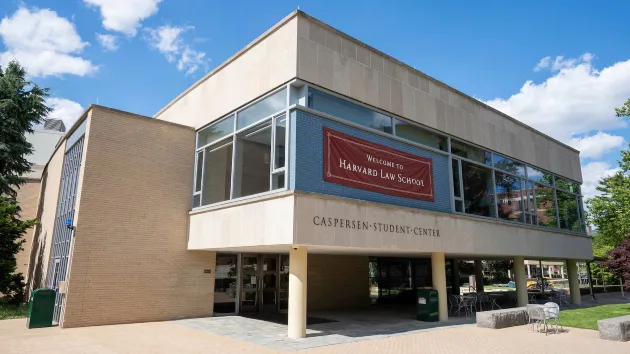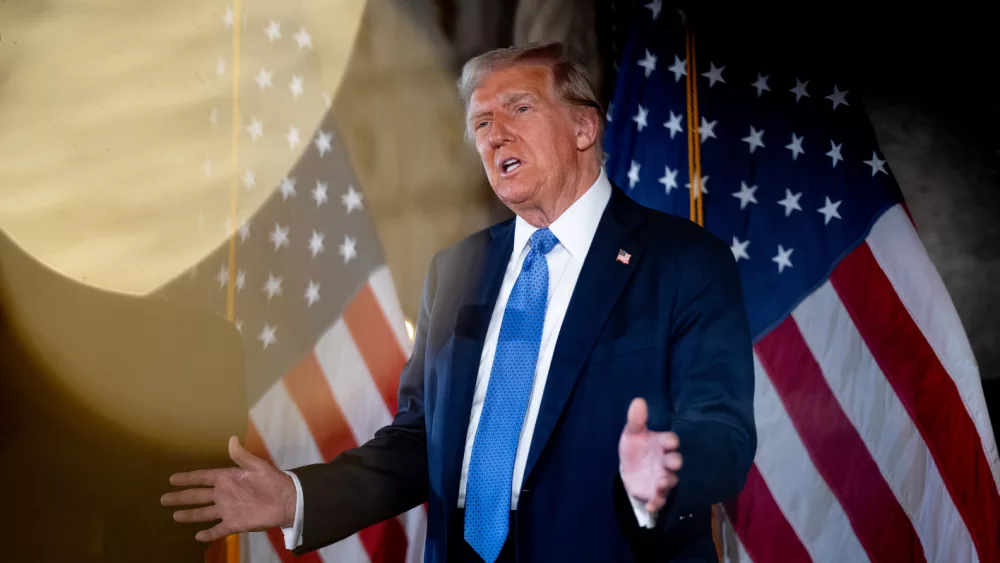The first Harvard Law class admitted into the university since the Supreme Court effectively ended affirmative action at U.S. colleges last year is significantly less diverse, with a steep decline in Black and Hispanic student enrollment, according to data reported by The Harvard Crimson.
According to the data, which was reported to the American Bar Association, Harvard Law’s J.D. Class of 2027 includes 19 Black students, as opposed to 43 students the previous year – with enrollment dropping by more than half. Enrollment of Hispanic students also steeply declined, with 32 students admitted into the class of 2027, compared with 63 the previous year.
Meanwhile, enrollment of Asian students increased from 103 to 132 students in the class of 2027.
ABC News reached out to representatives at Harvard University and Harvard Law for comment and to learn the total student enrollment for the class of 2027, but requests were not immediately returned.
Jeff Neal, a spokesperson for Harvard Law, told ABC News in a statement on Tuesday that following the Supreme Court’s landmark ruling last year, it was “understood that the decision would impact, in ways that could not be fully anticipated, the ability of educational institutions across the nation, including law schools, to attract and admit a diverse cohort of students.” But Neal added that conclusions that can be drawn from a single year of data are “necessarily limited.”
“We continue to believe that a student body composed of persons with a wide variety of backgrounds and experiences is a vital component of legal education,” Neal said. “Harvard Law School remains committed both to following the law and to fostering an on-campus community and a legal profession that reflect numerous dimensions of human experience.”
ABC News reached out to representatives of Harvard University for additional comment.
The ruling stemmed from two cases regarding the admissions programs at both Harvard and the University of North Carolina, where the court ruled in an opinion with a conservative majority that both programs violate the equal protection clause of the 14th Amendment.
Associate Justices Sonia Sotomayor and Elena Kagan dissented in the two cases, but Associate Justice Ketanji Brown Jackson dissented in only the UNC case – having served on the Board of overseers at Harvard, her alma mater – she recused herself in the final Harvard case vote.
Prior to the blockbuster ruling, affirmative action had been used by U.S. colleges and universities for decades to diversify campuses and address issues of inequality. Its constitutionality was repeatedly upheld by the Supreme Court prior to the June 2023 ruling, as long as a student’s race is only one of the factors that was considered during the admissions process.
According to the Harvard Crimson, the Supreme Court’s decision led to a change in Harvard Law School’s admissions process, where applicants were required to submit a “Statement of Purpose” and “Statement of Perspective” – as opposed to a personal statement – where they were asked to “share how your experiences, background, and/or interests have shaped you.”
Sean Wynn, President of the Harvard Black Law Students Association, shared a statement with ABC News on Tuesday on behalf of the HBLSA that emphasizes the historical contributions of Black J.D.’s in shaping Harvard Law, as well as the community’s notable contributions to the U.S. legal system.
“The African-American experience has always been intimately tied to the development of American law, often playing a role in both its most maligned and most revered moments. Making sense of this jarring corpus with a smaller community is a tall order in and of itself, made even more difficult with the added expectation that these students provide a ‘Black perspective’ in class discussions,” the statement added. “The demographic shift places significant pressure on those few Black students present to represent the Black community, in all its variety and complexity, during conversations about the law.”
The statement also called on Harvard law and law schools around the country to “take immediate action to ensure the democratization of legal education,” stating that the decline in Black student enrollment at the law school “has broken something fundamental about the experience of attending this law school.”
ABC News’ Devin Dwyer contributed to this report.
Copyright © 2024, ABC Audio. All rights reserved.






